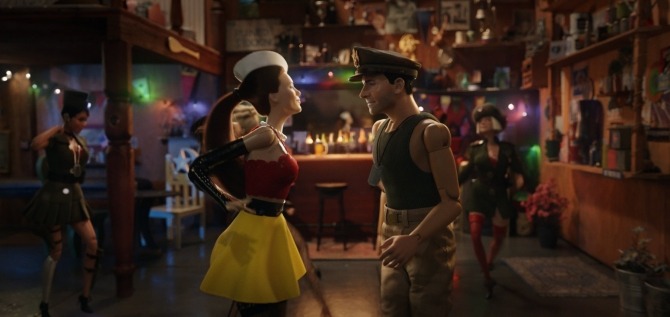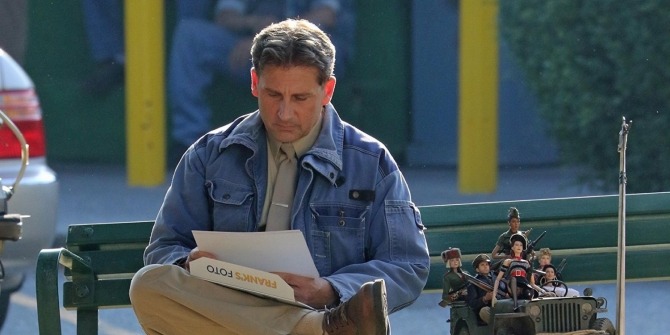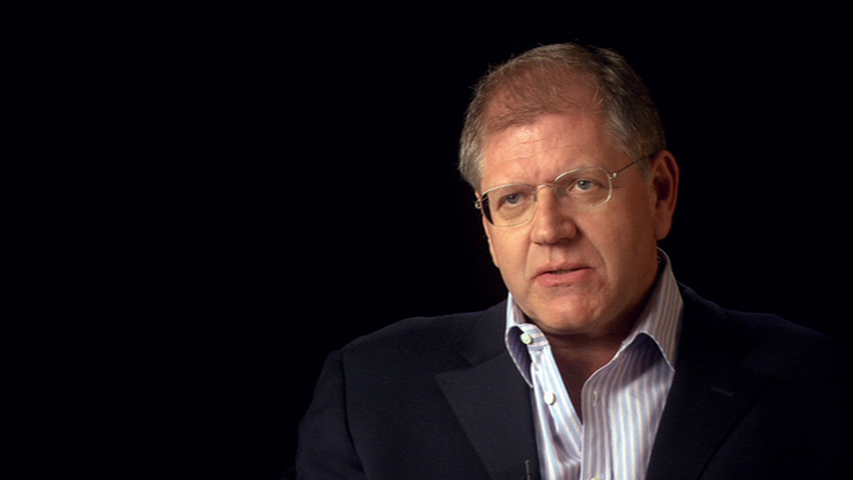This doesn’t usually happen. Ahead of the release of a new trailer for his next film, Welcome To Marwen, director Robert Zemeckis rang us up in the
It’s based on both a horrific and subsequently heartwarming true story, and the fresh trailer for the film lands later today, and we’ll add it here when we get it.
But I wanted to thus talk to Mr Zemeckis about how to shape the promotion for the film, how to get such an unHollywood film made in
And you know what? I did…
I’m intrigued by this, to be able to have a chat about promoting a film, months before it arrives. I’m a trailer avoider as a rule, and I’m curious how hard you find it to get across the tone and feel of your film in a movie trailer?
[Laughs] It’s really hard, it’s really hard. I have to say that the marketing department and the trailer department – who designed this trailer – did a really great job. And listen, it’s an art form that I personally don’t understand. So I’m sort of the last person… for a lot of reasons! I’m the one person on the entire Earth with zero objectivity about any of this.
I look at the trailer and I’m astounded. Sometimes in a good way, sometimes in a negative way, as to what their thinking is, the way to sell a movie. But it’s always difficult when you’re doing a movie that’s first of all original, and secondly deals with very complex emotional things, wrapped in an outrageous fantasy.
Yes, this is a tall order for any marketing department, let me put it that way.
You talked to my colleague when you were promoting The Walk, and one of the conversations you had was about how the sophisticated of what we’re allowed to see in cinemas has regressed slightly, counter to what we’re allowed to see on television. Yet this project from what I can see seems to fly completely contrary to that?
Yes. It is, it is. I am so grateful that I was able to get it made.
What is it that gets that made? I remember interviewing David Fincher about making Benjamin Button once, and he argued that it took the determination of someone pushing a rock up a hill to get that film shot. Is that what it took for you with this?
Yeah. I pushed the rock way up the hill, and then Donna Langley, head of Universal Pictures, helped me push it all the way up. It was her courage, and enthusiasm for the project, that got it made. I mean, you don’t see this very often these days, this kind of movie.

Who, then, do you target the film at? Are you aiming for a grown-up adult audience? Or given the themes in the film, do you want a broad audience to see that?
Right. I will tell you that all ages – obviously not really young children – will enjoy this movie. But how it’s marketed? Again, that’s another whole artform. One of the things that has happened, and I think it’s detrimental to movies but it is what it is, the media seems compelled to have to put all films into categories. Back in the day when we used to have… I guess you had Blockbuster Video?
We did! It used to be Ritz, then Blockbuster bought them up!
Well, they never knew which shelf to put my movies on! They didn’t know whether it should be on the comedy shelf, the science fiction shelf. They never knew. I always liked that. And this is one of those! You don’t know which shelf to put it on. It doesn’t detract from the movie one bit, but it is a difficult one. But I believe that males and females, young and old, will enjoy this film.
Appreciating that I’m pulling the trapdoor on myself a little bit, one of my frustrations with modern cinema is that you now have a fairly feral movie press, that’s looking to knock things down to a list, or a two-dimensional article, or a quick 200 words, rather than lengthy discourse.
Do you feel that’s to the detriment of getting films like Welcome To Marwen made?
100%. 100%. Because the film has to be… not only does the film have to be presented to the audience once it’s finished that way, but filmmakers have to pitch movies that way now.
I wrote a longform lookback at Contact once. And every time I push that out, it’s evident the huge affection for the film, and how much people want to talk about it. But I remember the narrative around the film’s release was box office, how much profit did it make? That narrative has changed since. But do you get that sense from your older movies, and does that give you confidence in choosing what to tackle?
So far, I’ve always been able to never try to… well, I ask myself two questions when making a film. Is this a movie that I would like to see? And then do I think that anyone else would like to see?. If the answer to both those questions is yes, then I go forward.
Someone said, I think it was Truffaut, that every filmmaker’s next movie is a direct reaction to the film they’ve just made. There may be something of that in there! I don’t know. I’m just grateful that I can continue to make movies that are unique, different and are film stories. Stories that are best told in this medium.
With this story, I’m conscious it’s based on a documentary that originally told the true story. I’m guessing the documentary was where you encountered it first?
I did, I did. I watched the documentary and I instantly saw the potential of this being a movie, and how I could take everything that was beautiful in the documentary, and expand and present it in a way that could only tell the story like this as a movie. I called Donna Langley the next day after I saw it, and said we have to buy it. We have to make this a movie.
And that was, what, 2013?
Eight years ago! It was a lot of pushing up the hill. A long journey!
I remember when Clint Eastwood made Unforgiven. And one of the stories that he told in interviews was that he had to wait for the film to fit him. That he sat on the script for a decade or so before making the film. He had the tools as a filmmaker to make the story, but wasn’t necessarily ready as an individual. Do you find anything like that impacts the kind of stories you want to tell?
Yeah, well everybody changes. Everybody evolves. I’m very fortunate that in my career, I haven’t had to tell the same story over and over again. I know that I’m pretty unique in that, and that there are very few of us. I appreciate that personally because I love all films of all genres if they’re good. Maybe there’s a restlessness in me that’s always tried something different.
I do think it’s true. I think filmmakers have a project and they put it away until their ready. My favourite… ah, who said this… someone said that the reason a director is attracted to a project is like a love affair. It’s like both of you have to be at the same place at the same time, and if one of you is off by a few seconds, you become ships that pass in the night. It’s a little bit like that. You can’t really grind it down too much.
Humanity is the key thing for me about your films, strong human stories, no matter what technique you’re using to tell the story. Is that what you actively look for, as much a writer as a director?
Oh yeah. I’ve always looked to that. I don’t know how to make a film if I don’t know what the emotional human journey is. I don’t know how to do it. I don’t know what to do!

You’ve been working with an awful lot of actor-directors over your career. Your lead here though is Steve Carell, a hugely versatile actor. What led you to him, and soon did you find him?
Well, he brings everything that I needed for the character to it. He has this what we call everyman quality, but he can also deliver… he doesn’t have a typical leading man thing. He’s a magnificent actor who brings pathos and emotion to the piece, but he also has this fantastic background in comedy. He can do all the swagger when it’s needed. He can make that delicious. He was my first choice, he read the script, and he signed on instantly. It was perfect for me!
One of the reasons I asked that was I was curious if you were specifically looking for someone who could bring comedy to something hugely serious? That it’s comedy that makes horrific things in life bearable?
Yeah. Certainly. I also think that one of the things that is missing in current cinema is… filmmakers seem to be terrified to put any kind of comedy in drama. I find that makes the experience entertaining. The great thing about comedy is that it’s truth. Nothing is funny if it’s not the truth. Comedy is a fantastic tool to use in a story that’s deeply emotional.
I find, also going against the current trend, that you’re a hugely measured filmmaker when it comes to sound. That you put beats and pauses in your stories. You use silence to real effect. Have you woven that in here too?
I don’t really have an answer to that – I’m going to go home and think about that now! [Laughs] I don’t pay specific attention to that when I’m making the movie. I sort of feel it.
How close, then, is the film as it stands to the story you discovered eight years ago?
The movie is very much truthfully inspired by the original events, but it’s not by any means exactly. The correct phrase would be that the story is inspired by events!
Robert Zemeckis, thank you very much.
Welcome To Marwen arrives in UK cinemas next January.

